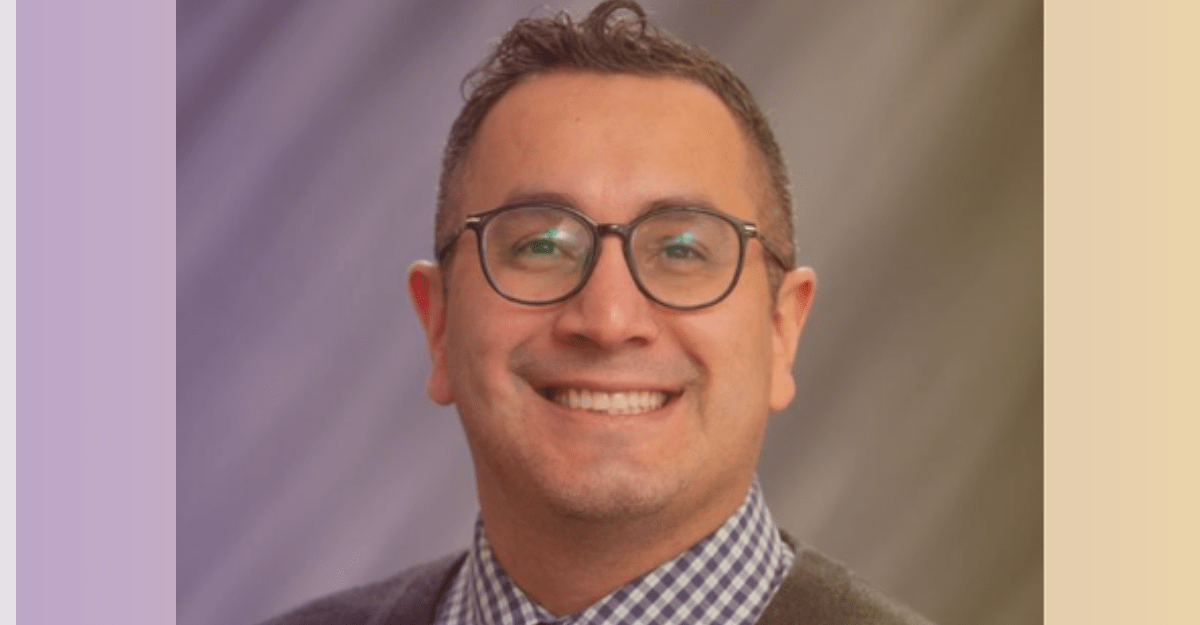School of Education professor’s research centered on social justice
School of Education professor’s research centered on social justice
Dr. David Hernández-Saca moved to the U.S. from El Salvador when he was two years old to escape El Salvador’s Civil War. His family moved around Arizona and Southern California for a couple years, which Hernandez-Saca does not remember well because he suffered from seizures and compulsions and was frequently hospitalized. By fourth grade, while living in the California Bay Area, his seizures had slowed down and he stopped taking the anti-seizure medicine, which he said allowed him “to be aware and cognizant and build relationships and be more communicative.” This journey of immigration. disability, and school informs his research and scholarship. He has written autoethnographic texts (e.g., poems, vignettes, narratives, and art-based artifacts such as paintings) about his experiences.
Hernández-Saca received his Bachelors of Arts in U.S. history: race relations with an education minor and then his master's in education: language, literacy, culture and society at the University of California, Berkeley. The history professors at UC Berkeley inspired him to become a professor. “Those history professors taught me to problematize common sense societal assumptions, which would eventually become my research agendas.” He realized that his research could trouble hegemonic assumptions about learning disabilities and he decided to pursue a doctorate.
He received his PhD at Arizona State University in curriculum and instruction with an emphasis in critical special education for school-wide equity and access. After graduating with his PhD, he started teaching at the University of Northern Iowa in 2016 in the College of Education.
He teaches the foundations of inquiry course for incoming EdD students. “In that course, we orient students to theoretical and conceptual frameworks around the history of ideas and traditions. I hope to help cultivate their theoretical and conceptual voice, as well as their researcher positionality and relationality to their problems of practice.” Another way he works closely with graduate students is serving on the dissertation committees of EdD students.
One of Hernández-Saca’s guiding research principles is the belief that the academy must confront and remedy historical injustices made against historically marginalized peoples. He claims that as a university, “we need to be intentional and thoughtful about our actions and interactions. We need to find a balance between our values as an institution and as a society or as a human species regarding questions of the public good, within disciplines and across disciplines. We must create and sustain positive, inclusive environments where people are free to share their whole humanity directly and indirectly.” He contends that it is important for universities to be self-reflexive to achieve social and emotional justice.
Hernández-Saca recently submitted a book proposal “that brings a practical, methodological, theoretical and conceptual reframing about what counts as learning disabilities, and speech and language impairments.” He is excited that this project focuses on practical applications, since he typically focuses on theory. He is also featured on a 2021 podcast by Chris Carr discussing disability, social justice, and the future of COVID-19.
He emphasizes his love of teaching. “I think some of my favorite memories with students are when I witnessed the ‘aha!’ moment. I love when students come into their voice and take risks that push them to that next level of understanding.” He also enjoys lifelong personal and professional friendships engendered from working on research with students.
Dr. Hernández-Saca





